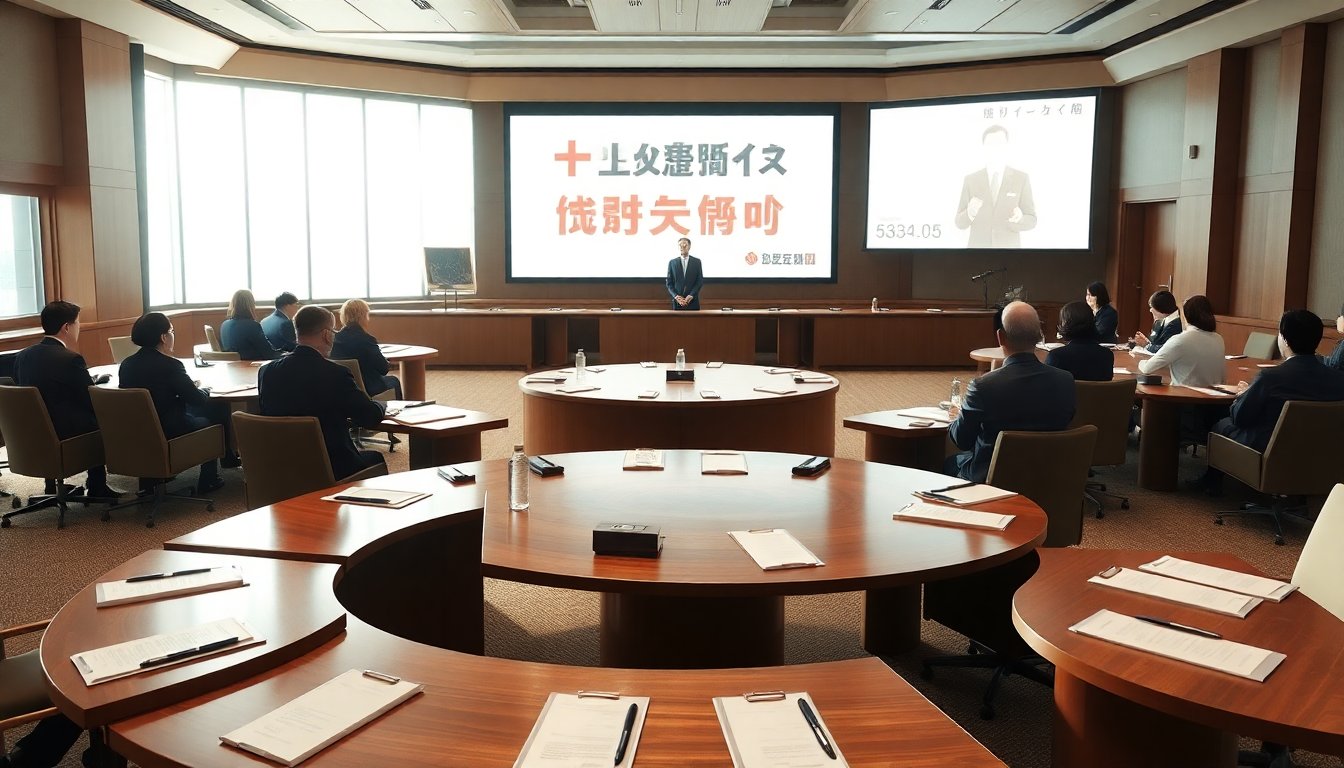Table of Contents
In a significant shift in Japan’s political landscape, the ruling Liberal Democratic Party (LDP) has elected Sanae Takaichi as its new leader. This development positions her to potentially become Japan’s first female prime minister, marking a notable achievement in a country often criticized for its lack of gender equality. The 64-year-old politician is known for her conservative views, aligning closely with the party’s established ideology.
Takaichi’s election occurs amid the LDP’s efforts to regain public confidence following a series of electoral setbacks. As a prominent party figure, she embodies the hardline stance that has characterized LDP politics, particularly concerning diplomatic relations with China and the United States.
Breaking barriers and confronting challenges
Takaichi’s rise to leadership represents a historic moment for the LDP, as she becomes the first woman to hold this position. Her strong advocacy for conservative values sets her apart in a party traditionally dominated by men. She draws inspiration from influential figures like former British Prime Minister Margaret Thatcher, and her political career has closely aligned with the vision of former Prime Minister Shinzo Abe.
In the LDP elections, Takaichi triumphed over Agriculture Minister Shinjiro Koizumi, son of a beloved former prime minister, in a runoff that underscored the party’s internal divisions and the desire for a return to conservative roots. Her victory suggests a strategic pivot aimed at recapturing support from conservative voters who may have shifted allegiance to far-right factions in recent elections.
Addressing domestic and international priorities
As Takaichi prepares to assume leadership, she has articulated her commitment to addressing pressing issues such as rising prices and Japan’s security landscape. In her inaugural remarks as party president, she emphasized that her immediate focus will be on economic stability and enhancing diplomatic relations, particularly with the United States.
With a parliamentary vote anticipated in mid-October, Takaichi faces a critical diplomatic engagement, notably a potential summit with U.S. President Donald Trump. This meeting may involve discussions on Japan’s defense spending and its role in regional security frameworks. Takaichi has stated that reinforcing the Japan-U.S. alliance is her top diplomatic priority, recognizing the importance of collaboration with regional partners like South Korea and Australia to achieve a free and open Indo-Pacific.
Challenges ahead for the new leadership
The LDP has experienced declining public support, resulting in a significant political vacuum that demands immediate attention from its new leader. Takaichi is tasked with restoring confidence among voters while navigating a complex political landscape that includes fragmented opposition parties. Her leadership will require cooperation from moderate factions within the LDP as well as potential alliances with centrist opposition groups.
Former Prime Minister Shigeru Ishiba, who held the position briefly, highlighted the need for unity within the party and urged Takaichi to lead with a focus on both domestic and international stability. However, her strong conservative stance may pose challenges in garnering support from more liberal segments of the political spectrum.
A cautious approach to contentious issues
During her campaign for leadership, Takaichi adopted a more moderate tone, downplaying her historically conservative and anti-China views to present herself as a collaborative figure. She indicated that contentious topics, such as the Yasukuni Shrine and Japan’s wartime history, should not define diplomatic relations, suggesting a cautious approach to sensitive issues.
While advocating for increased fiscal investment and military readiness, Takaichi’s comments regarding foreign nationals and labor policies have drawn scrutiny. Analysts note that her avoidance of discussions on divisive social issues and political scandals may hinder the LDP’s ability to regain public trust following recent electoral challenges.
Takaichi’s election occurs amid the LDP’s efforts to regain public confidence following a series of electoral setbacks. As a prominent party figure, she embodies the hardline stance that has characterized LDP politics, particularly concerning diplomatic relations with China and the United States.0


